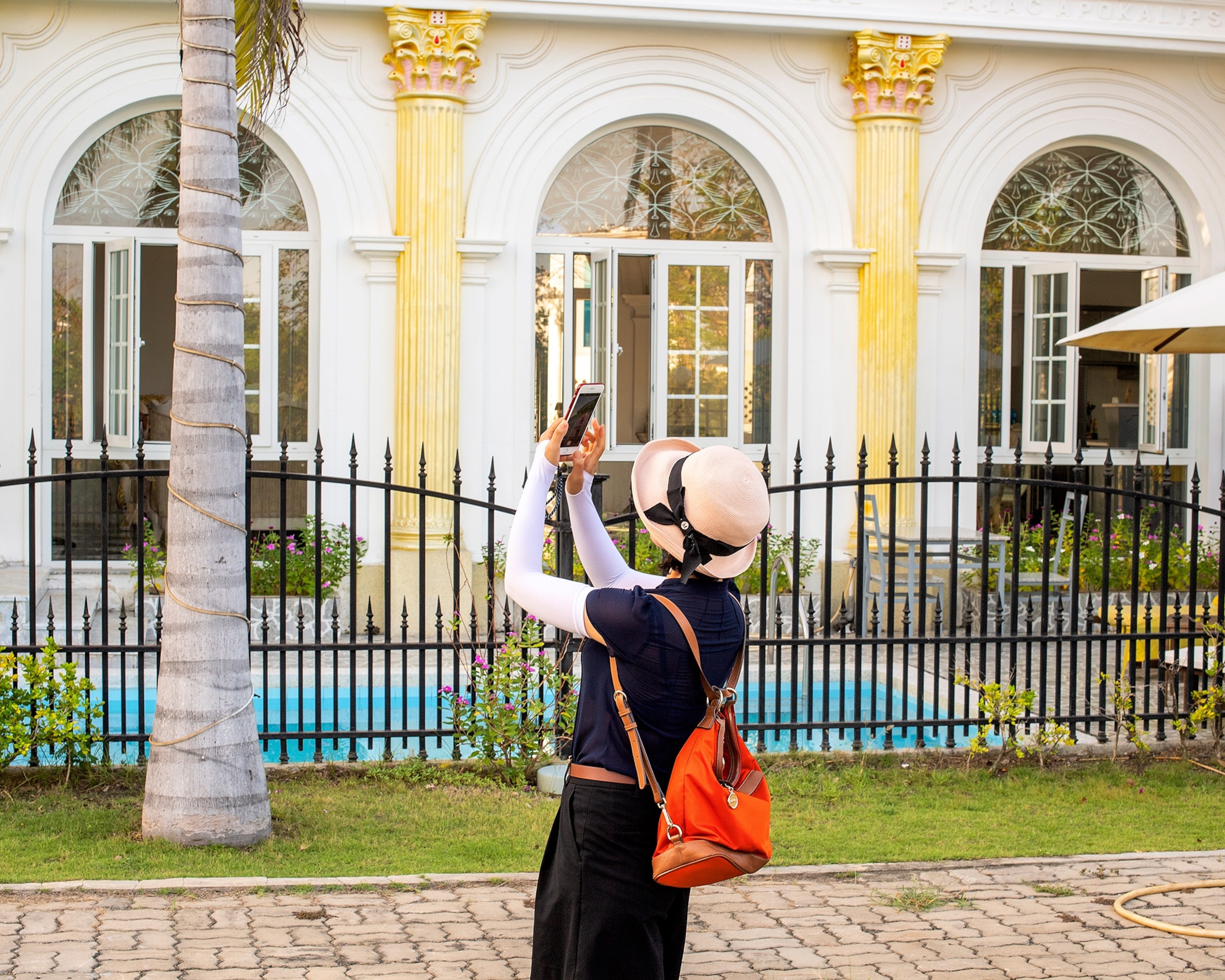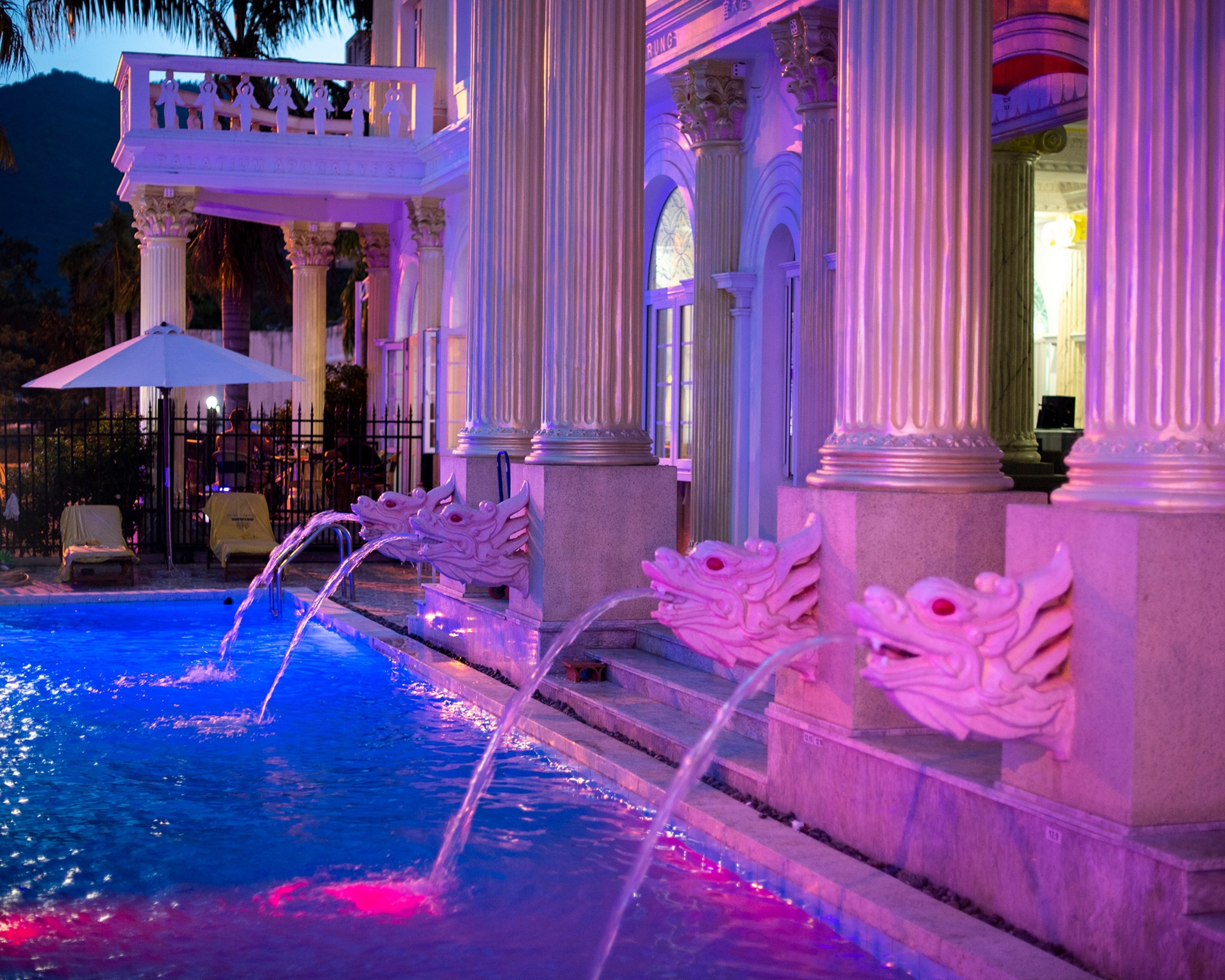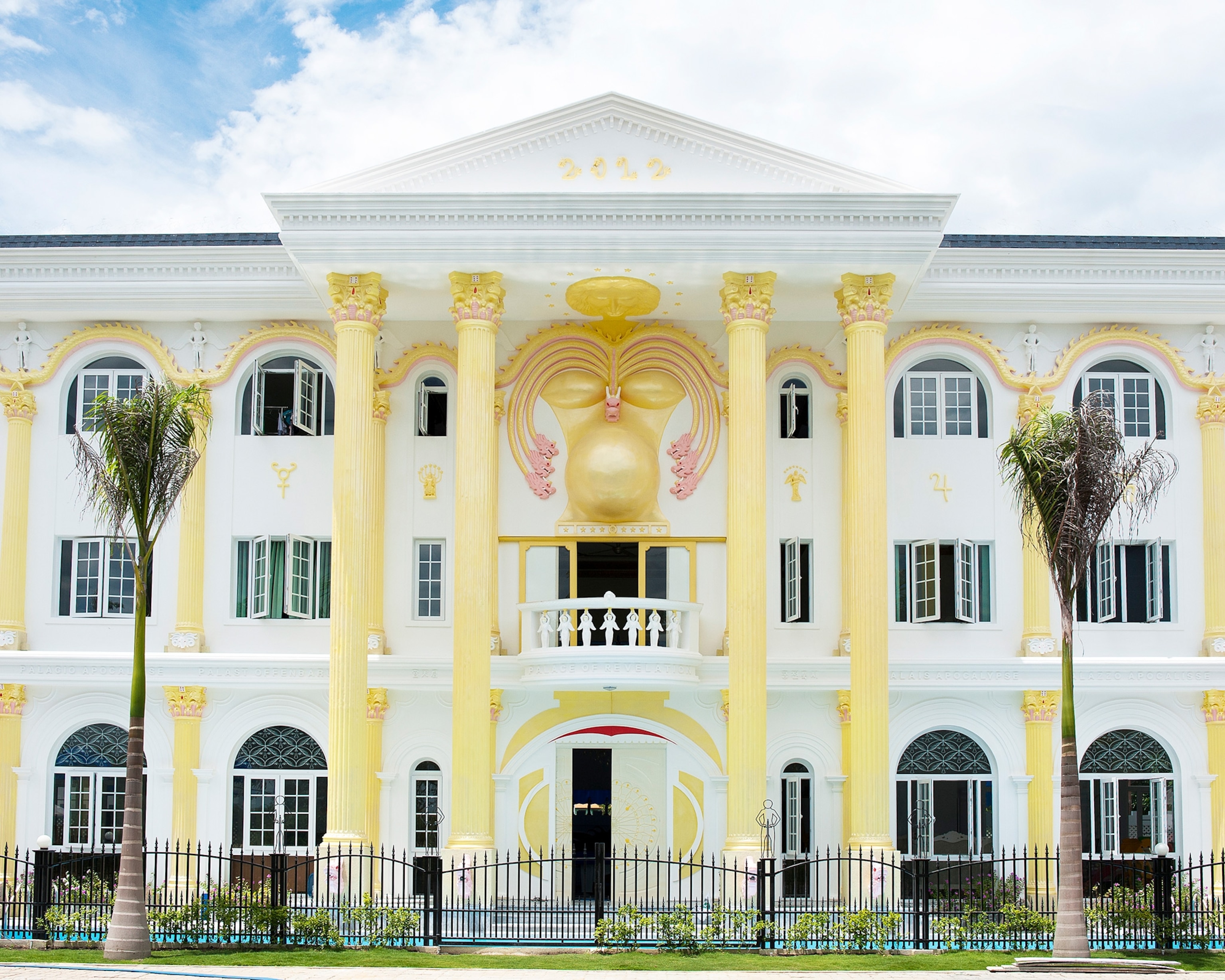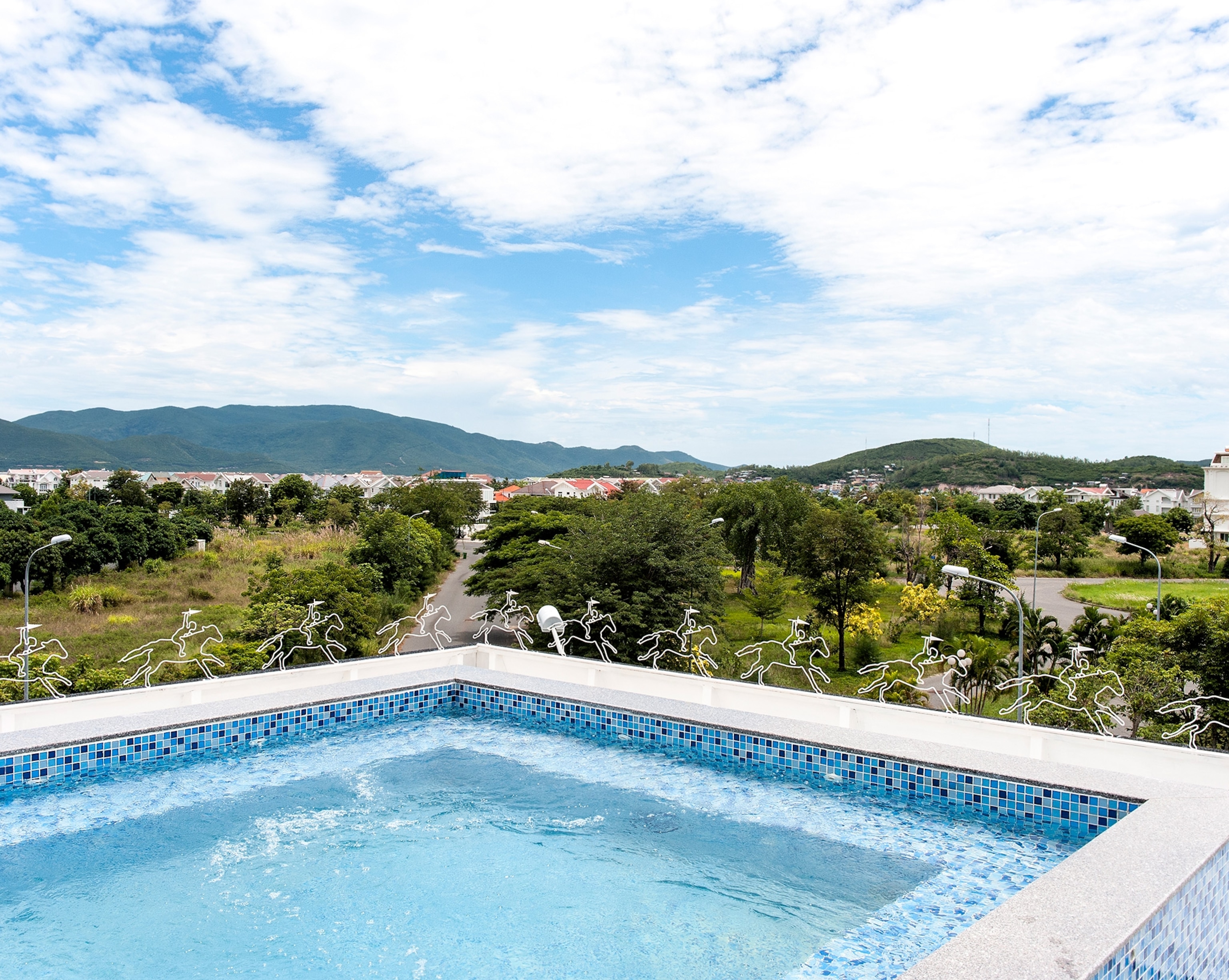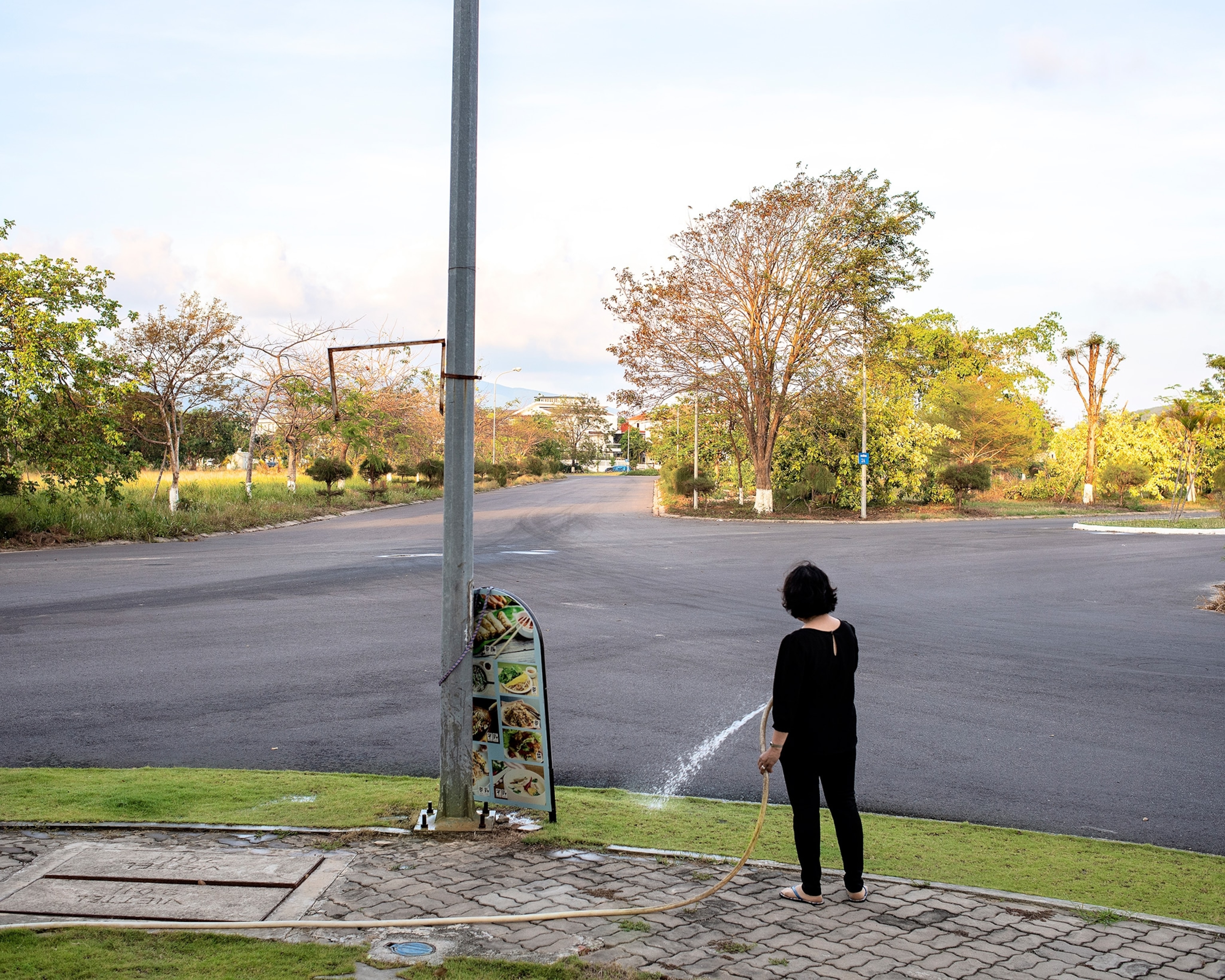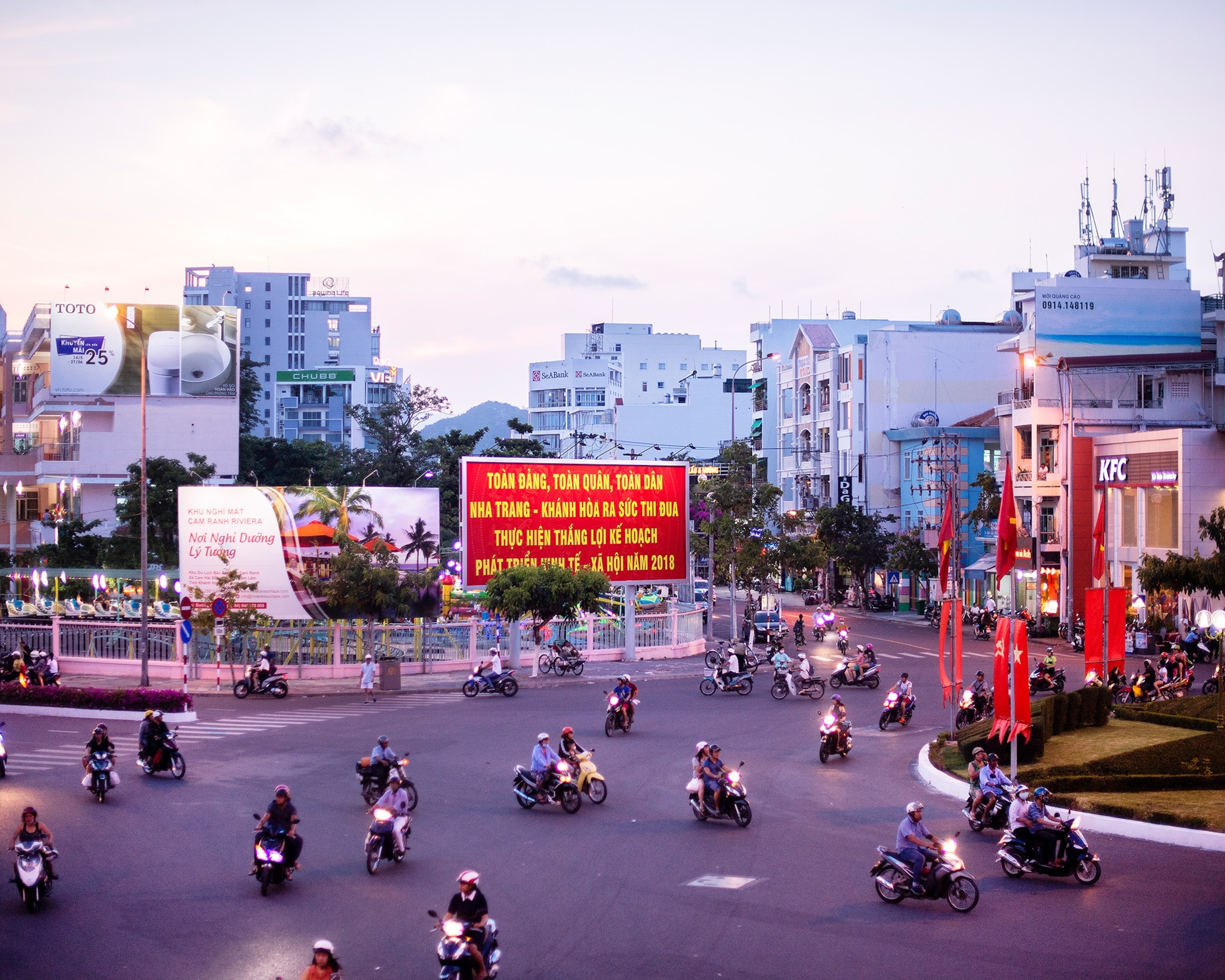
Step Inside This Apocalypse-Inspired Palace
Hotelier Son Bui was inspired by symbols from the Book of Revelation.
It was the year of the great tsunami that Vietnamese hotelier Son Bui says he first spoke with God.
On December 26, 2004, a 9.1-magnitude earthquake shook the seafloor off the coast of the Indonesian island of Sumatra. The water receded, then surged violently, razing coastlines from Indonesia to East Africa.
Although the epicenter was more than a thousand miles from his home in Hanoi, the temblor rattled Bui and sent him searching for meaning. “I don’t go to the church and don’t practice any religious rite, but I know that Jesus Christ lives in me,” Bui says. That feeling has guided his life every day since the earthquake.
In the face of cataclysmic forces, both physical and spiritual, Bui left the congested streets of Hanoi for the quiet, sun-bleached shores of Nha Trang, Vietnam, to start his life anew. Inspired by his ongoing conversations with God and the Book of Revelation's “spirit of truth,” Bui began designing his own hotel based on symbols in the scripture. In a Christian-minority country, his goal is to share his spiritual vision with guests from around the world.

“It’s like a movie with a lot of characters, including humans, animals, and monsters,” Bui says. “If you come to visit this house, you will see hundreds of beautiful, creative, and exquisite design details, which illustrate the characters [and] events in the Book of Revelation.” In the construction contract, Bui stipulated that the palace must be completed by December 12, 2012—then widely speculated to be the date of the Apocalypse. Life didn't end in 2012, and neither did construction, but the Palace of Revelation currently welcomes guests with air conditioning, karaoke, ocean views, and Biblical visions.
A Brief History of the End of Time
Throughout history, tales of our creation were inevitably succeeded by stories of our destruction. Apocalypse, from the Greek apokálypsis, translates to an uncovering, disclosure, or revelation—appealing to humanity’s intrinsic need to make order from chaos.




“Apocalyptic thinking developed in Judaism about 22 centuries ago,” says Lorenzo DiTomasso, professor of religions and cultures at Concordia University Montréal. “Among its first expressions was the Book of Daniel in the Bible … The final book in the New Testament is the Revelation of John, the blueprint for the apocalypse for all Christians and one of the most influential books in history.”
The Book of Revelation—also called the Apocalypse of John—is the last book in the New Testament and was written around 95 C.E. during the persecution of Christians by the Roman Empire. Poetic and evocative, it lays out the sequence of the apocalypse in an astonishing display of dragons, falling stars, lion-headed horses, and a flame-eyed Christ.
Biblical prophecies date back centuries, but the past several decades have seen an explosion of Doomsday forecasting, according to DiTomasso. The range of scenarios reveal our darkest preoccupations—biological warfare, extreme weather events, undead rising, and hostile robot takeovers have become mainstream archetypes.
In 1967, Jim Jones, founder of the Peoples Temple, predicted a “nuclear holocaust" in 1967. Charles Manson convinced his followers that Helter Skelter, an apocalyptic race war, would break out in 1969. Evangelical radio host Harold Camping predicted the Rapture six times between 1994 and 2011. “End-of-Time prophet” Ronald Weinland predicts the Second Coming will be next summer.
Bui, along with thousands worldwide, subscribed to the “2012 Phenomenon.” According to the Maya calendar, 2012 marked the end of a 5,000-year cycle known as the Long Count—widely misinterpreted as the “end” of their calendar. A growing New Age movement heralded December 12, 2012, the winter solstice, as the literal destruction of the world or renewal of human consciousness.
Perhaps because he survived, Bui now believes the 2012 date represented a metaphorical end, not an absolute end.
Apocalypse Now?
Bui’s Palace of Revelation is one-of-a-kind, but apocalypticism is a global worldview.
End-times beliefs are global and cross-cultural—adapted by different groups over time, DiTomasso says. Traditionally, apocalyticism was rooted in scripture, but in the modern era, it’s fueled by the most pressing economic, social, and environmental problems of our time.



“In the biblical mode, it is God who will take care of everything, wipe the slate clean, punish the evil and reward the righteous with everlasting life in the new creation,” DiTomasso explains. Apocalyptic thinking is also a theory of justice and salvation, according to the researcher. “In the secular mode, the saviors are superhuman types, political or economic or social figures with messianic messages, or otherworldly forces like the free market.”
The upsurge in cataclysmic predictions may in part be a symptom of the internet era. Fringe theories that were once geographically isolated can now cross oceans with a single click. In the years leading up to 2012, Doomsday documentaries, books, movies, and YouTube videos proliferated. Even companies like Vivios, which designs multimillion dollar survival shelters, displayed a countdown to December 12 on their marketing materials, according to USA Today.
Social scientists suspect that people are drawn to these stories because they help them make sense of their world. According to some historians, the Book of Revelation may have been consolation for early Christians who faced persecution by the Roman Emperor Domitian. “Evil Rome is ultimately destined to fall by the even mightier hand of God,” DiTomasso explains.
Revelation and Redemption
“Apocalypse is really a very human preoccupation,” says Dr. Robert Joustra, professor of politics and international studies at Redeemer University College. “The common thread, from Armageddon to Ragnarok is revelation and transformation. While destruction is a common theme, it is not the actual point of apocalyptic stories … It is about redemption, renewal, and the new reality.”
Ideals of renewal may be universally appealing, but subscribing to apocalyptic beliefs can be harmful. “Apocalyptic thinking is powered by the thirst for vengeance on one's enemies, by the hope that justice, which cannot be imagined to occur in this world or brought about by human hands, will occur in the next world, and for all time,” DiTomasso says. “For this reason, apocalyptic thinking has especially appealed to small or marginalized groups that are, or consider themselves to be, deprived, oppressed, or persecuted.”
Karen Douglas, Professor of Social Psychology at the University of Kent, suggests beliefs which tie our future to forces outside our control can be comforting, but ultimately disempowering. “We know that believing in conspiracy theories is associated with negative attitudes towards politics, vaccination, climate change, and even the workplace,” she says. “People who endorse or are exposed to conspiracy theories tend to disengage from these important aspects of society.”
A Room with a View


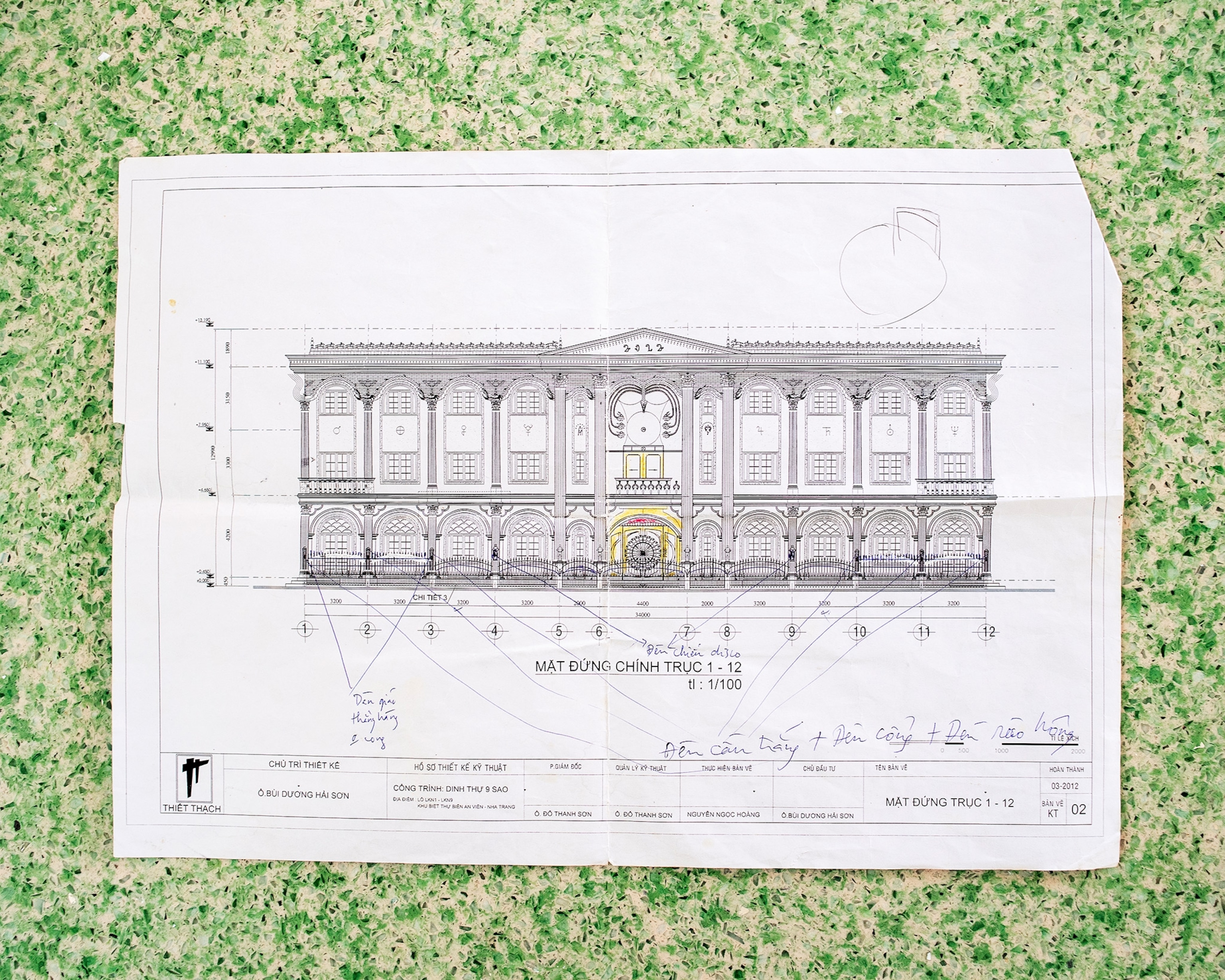
Back at the Palace of Revelations Bui has surrounded himself with apocalyptic symbols from the Book of Revelation—chandeliers designed in the shape of flames hang from the ceiling, horsemen line the staircases, angels flank the balconies, fallen stars line the walkways, and red lamps in the pool give the illusion of water turning into blood.
And he has found new ways to express his viewpoints. He designed the World Flag of Peace, a flag that represents one human family. “When the World Flag of Peace raises high before the opponent or enemy, it will significantly reduce the risk of conflict or war,” Bui says. It sends the message, “I’m honoring you, your family, your ancestors, your nation. I'm trying to tell you we are brothers born on this flag, we are one family, so why do you have to fight with me?”
Bui is currently writing a book about his experience meeting God, and working on developing the PrayWish app, a social network like Facebook. He says the PrayWish app won’t be a social network, but a “family network,” where people around the world can share their prayers.

It’s difficult to say how the hotel resonates with guests and Bui is not forthcoming about how he has funded a project of such biblical proportions. But it’s clear that his hotel has brought him comfort, even joy. And more, the hotel represents a pathway toward a sort of collective redemption.
“In my vision, to eliminate completely wars and conflicts in our civilization, we have to eliminate our differences and promote only our commonness,” Bui says. “If we are one family, the risk of wars and killings will be minimized because the members of family very rarely kill each other. Let the world to be one house, and we all to be one family.”
In the meantime, Bui is welcoming visitors into his biblical palace, waiting for the real Apocalypse to come.

